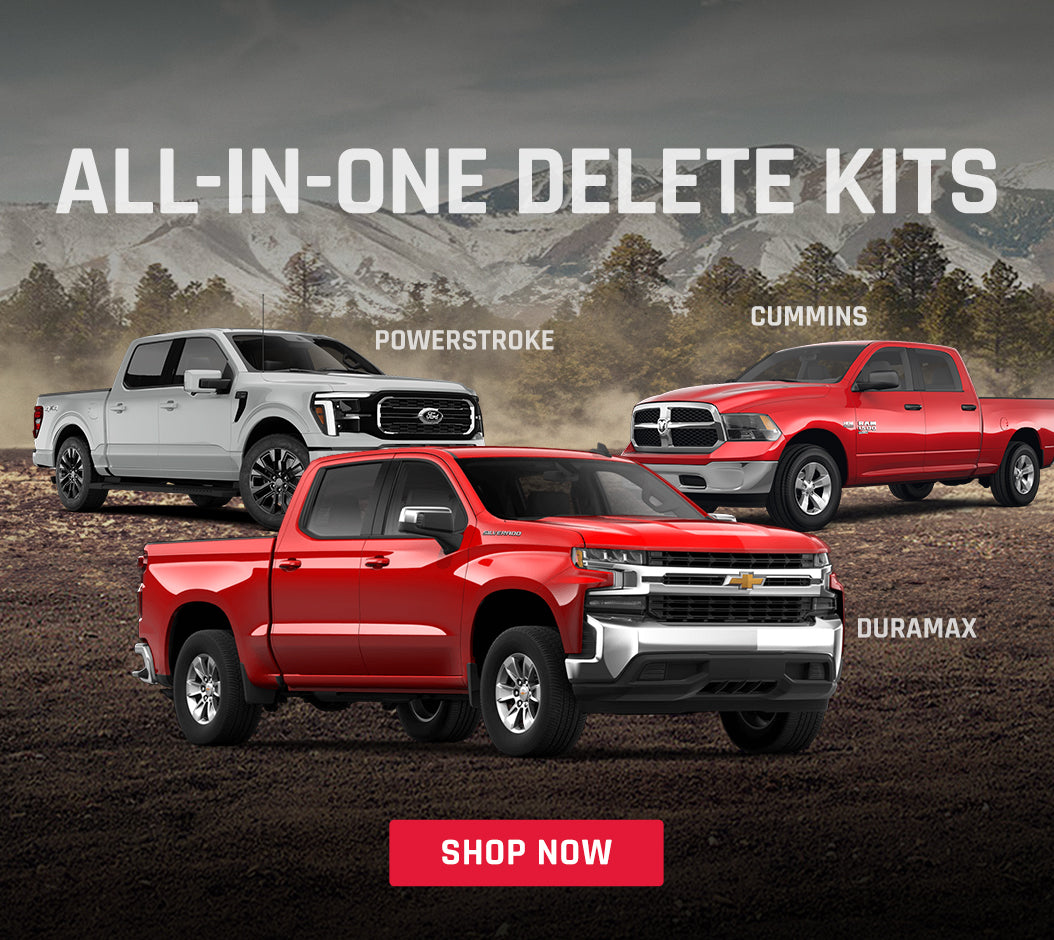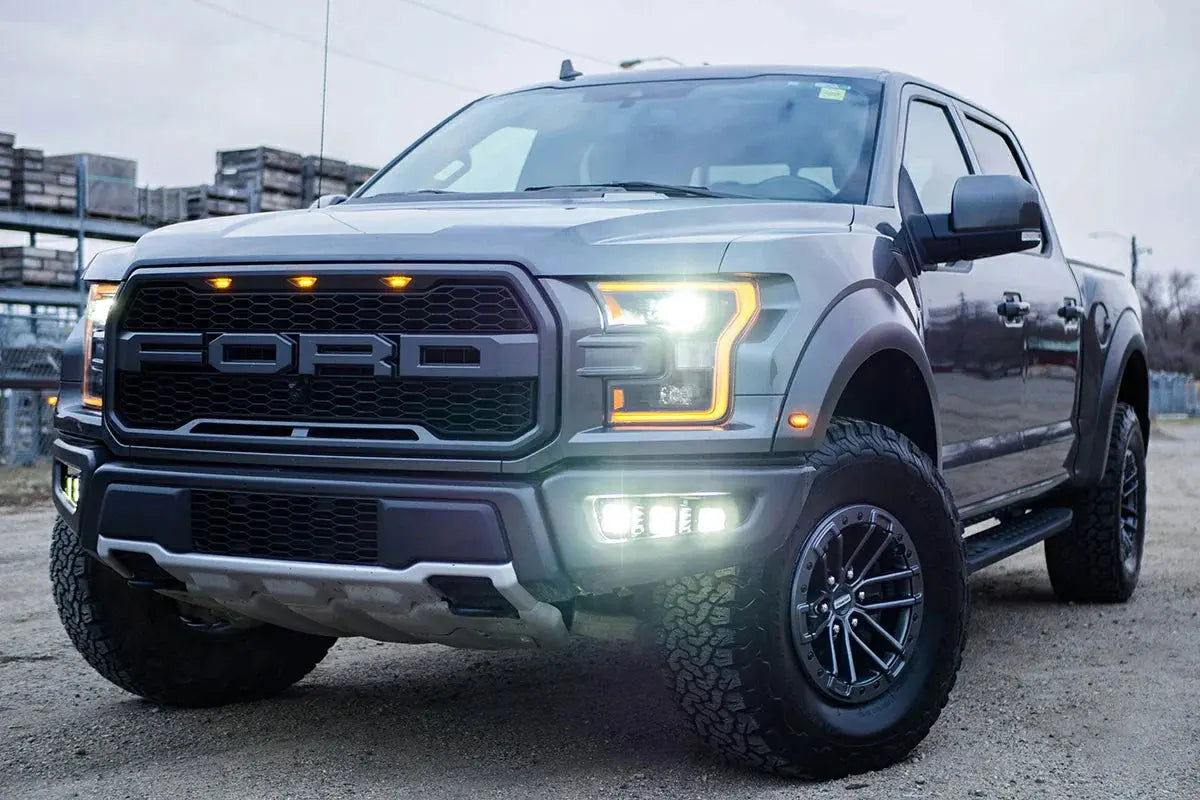On Reddit’s Cummins forum, one of the most debated topics is whether it's worth deleting the EGR and DPF systems on the 2020–2023 RAM 2500 Cummins. This debate goes far beyond performance—it touches on warranty concerns, legal compliance, recall implications, and long-term vehicle reliability.
Why is this such a common question among owners? Because it reflects several critical pain points:
l Repeated failures or malfunctions in the emissions systems (EGR/DPF/DEF)
l Desire for better fuel economy and drivability, without giving up warranty
l Uncertainty over legality and future resale value
l Overwhelming and conflicting information online
This article will walk you through the facts, supported by real user feedback, mechanical insights, and legal references, so you can make an informed, risk-aware decision.
1. Technical Background: Why Do People Want to Delete?
EGR (Exhaust Gas Recirculation), DPF (Diesel Particulate Filter), and DEF (Diesel Exhaust Fluid) systems are designed to reduce emissions, but many owners report practical downsides:
l EGR sends hot exhaust back into the intake, causing carbon buildup and reducing efficiency.
l DPFs clog over time, requiring active regeneration. Failed regen cycles can lead to limp mode.
l DEF systems are prone to faults in cold weather or with poor-quality fluid.
Many users view deletion as a way to simplify the system, cut maintenance, and unleash the engine’s full potential.

2. Warranty and Legal Considerations
Deleting these systems almost always voids the factory powertrain and emissions warranty. While the Magnuson-Moss Warranty Act protects consumers from unjust denial of warranty claims, the burden falls on the owner to prove the deletion didn’t cause the failure.
In practice, most dealerships take a strict stance—if they detect deletion, they may void your entire warranty.
Legally, deleting emissions equipment is a federal violation under the Clean Air Act. Fines for individuals can reach $4,500; shops have faced penalties into six figures. Enforcement is increasing, especially in states like California and Colorado.
Our Advice:
l Retain all stock parts and plan for reversibility
l Know your state’s emissions inspection requirements before modifying
l Use EPA-compliant tuners when possible (e.g., EFI Live with legal presets), but know even these can be risky if emissions components are physically removed
3. Warranty Breakdown: Cummins vs RAM
Many owners assume that because the engine is a Cummins, it won't affect their warranty. This is only partly true.
l RAM (Stellantis) handles the full vehicle warranty: emissions, transmission, ECM, wiring, etc.
l Cummins only covers the long block: cylinder block, pistons, oil pump, etc.
This means that if your ECM, EGR, or DPF sensors fail after a delete, RAM can (and usually will) deny coverage. Even Cummins coverage might be impacted depending on VIN registration and service records.
Our Advice:
l Check your engine’s status in Cummins INSITE before modifying
l Commercial spec trucks may retain broader Cummins support even after deletion

4. CP4 Pump Recall: A Related But Separate Issue
Many 2020 and early 2021 RAMs were built with the Bosch CP4.2 fuel pump, which has a known design flaw: internal metal debris can destroy the entire fuel system. Repairs often exceed $10,000.
RAM issued Recall 20V698000 to replace the CP4 with the more reliable CP3.
Common strategy from Reddit users: "Do the CP4 recall first, then delete."
Why?
l High-risk components are now covered or replaced
l If the recall is completed before deletion, there's a clean separation of liability
Our Advice:
l Don’t delete until the recall is complete
l Confirm that you’ve received a CP3 upgrade or equivalent solution
5. Performance & Economic Comparison (Based on Real User Data)
|
Category |
Stock |
After Deletion |
Notes |
|
Initial Cost |
$0 |
$2,000–$4,000 incl. tuner |
Varies by kit and labor |
|
Warranty |
✔ Fully covered |
❌ Mostly void |
Depends on detection |
|
Legal Emissions |
✔ Compliant |
❌ Illegal in most states |
CA, CO, NY = strictest |
|
MPG |
15–17 mpg |
18–21 mpg (highway) |
User-reported |
|
Horsepower |
370 hp / 850 lb-ft |
+50–100 hp / +100–200 lb-ft |
Conservative tunes |
|
Reliability |
DEF & EGR failures common |
Cleaner setup post-delete |
User consensus |
|
Driving Feel |
Regen lag, throttle delay |
Smooth, responsive |
Subjective but consistent |

6. Reddit Insights: Real Context + Real Advice
"I deleted it and haven’t had a DEF issue since. Truck runs smooth."
Analysis: Likely frustrated by recurring DEF pump or injector faults.
Tip: If you’re in a non-inspection zone, deletion is viable—just keep OEM parts.
"Still under warranty and no problems yet—I'm holding off."
Analysis: Smart wait-and-see strategy.
Tip: Use the warranty period to document EGR/DPF failures for future justification.
"Tried to flash ECM back to stock—dealer still caught it."
Analysis: New ECMs log tampering, even if software appears stock.
Tip: Don’t rely on stealth—assume deletion = voided warranty.
"Cold starts are louder, exhaust smell is noticeable—but it drives great."
Analysis: No DEF dilution = rawer exhaust, especially in winter.
Tip: Ventilate enclosed spaces; avoid idling indoors.
Original Reddit thread: Reddit Discussion
7. Common Problems Post-Delete + Recommended Mods
|
Issue |
Recommendation |
|
68RFE Transmission Stress |
Upgrade valve body, use mild tunes only |
|
Oil Vapor & Intake Carbon |
Install catch can or CCV reroute |
|
Loudness, Exhaust Odor |
Upgrade exhaust tip, add resonator or muffler |
|
EPA Risk (esp. commercial trucks) |
Keep parts, avoid social media posts about mods |
8. Who Should/Shouldn't Delete?
✅ Recommended For:
l Rural owners in non-testing states (PA countryside, parts of TX, FL)
l DIY-capable truck owners who understand the risks
l Out-of-warranty trucks with frequent emissions faults
l Heavy haulers or off-road users needing torque & thermal management
❌ Not Recommended For:
l Residents of CA, NY, CO, or other strict emissions states
l Trucks under factory warranty or lease
l Future resale in compliant markets
l Owners unfamiliar with tuning/restore procedures
9. Final Thoughts: It’s More Than Just a Performance Mod
Deleting your EGR/DPF isn’t just about horsepower. It’s about your long-term ownership strategy:
l Are you okay with giving up warranty support?
l Do you live in a state where inspections could fail you?
l Will you keep this truck long-term?
l Are you already facing repeat emissions issues?
l Can you revert the truck if needed?
Deleting might be a smart, calculated move if you answer "yes" to most of these.
Want to learn more about EPA-compliant tuners, reliable egr dpf delete kit, or what’s legal in your state? Contact SPETUNER. We specialize in diesel performance solutions for the U.S. and Canada—built for your real-world needs.





